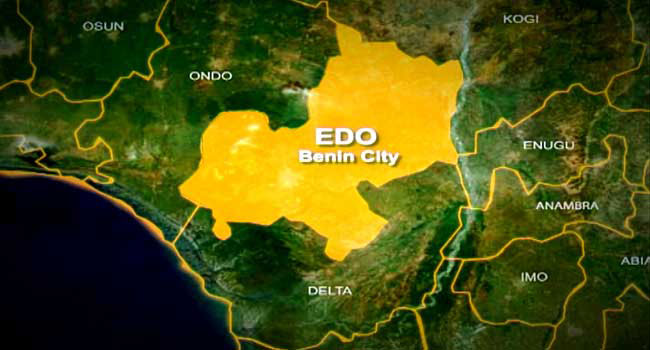The Nigeria Labour Congress and the Trade Union Congress have given conditional support for the removal of fuel subsidy.
The two labour bodies said that they would only allow the removal of fuel subsidy if the incoming administration of Bola Tinubu takes steps towards the repair and revitalisation of government refineries across the country and allow modular refineries.
Failure to do this, they said they would oppose the subsidy removal and mobilise workers to protest against the decision.
The regime of the President, Major General Muhammadu Buhari (retd.), had stated that the subsidy on Premium Motor Spirit, popularly called petrol, would be removed before the end of its tenure on May 29, 2023.
The Minister of Finance, Budget and National Planning, Zainab Ahmed, later explained that the subsidy removal was delayed by the 2023 general election and the planned population census.
The Minister of State for Budget and National Planning, Clement Agba, had, after the Federal Executive Council meeting held on March 15, said no conclusion had been reached on how to lessen the likely impacts of the proposed petrol subsidy removal on the citizens.
He said although a committee headed by Vice-President Yemi Osinbajo had been working for about a year, nothing definite had been agreed upon.
Speaking on Channels Television on Tuesday, the Minister of Labour and Employment, Chris Ngige, said the government would hand over the implementation of petrol subsidy removal and palliative measures to the incoming administration.
But the NLC and the TUC noted that there would only be a conditional acceptance of the removal of subsidy.
One of the principal officers of the NLC and President of the National Union of Local Government Employees, Hakeem Ambali, said the union remained oppose to the removal of fuel subsidy.
Ambali, who is the national treasurer of the NLC, stated this in an interview with our correspondent in Abuja.
“We are opposed to the removal of fuel subsidy until the Nigerian government acts responsibly by fixing our moribund refineries,” he stated.
Ambali also called for the standardisation of private refineries, saying, “It is a shame that Nigerians are made to suffer for the incompetence of the government. We are the only oil producing country in the world that imports petroleum products; let the government license and serve as the regulator by standardising the operation of private refineries to service the domestic value chain.”
The National President, National Union of Teachers, Titus Amba, said the union would stand by the decision of the NLC on fuel subsidy removal.
“We are working together with the NLC. The position of the NLC as regards the issue of fuel subsidy is our own position,” he stated.
Corroborating the stand of the NLC, the TUC advised the president-elect to ensure the smooth running of modular refineries across the country, while noting that fuel subsidy was a scam.
The Vice-President of the TUC, who also doubles as the National President of the Association of Senior Civil Servants of Nigeria, Tommy Etim, explained why Nigeria needed functional modular refineries.
Etim advised the incoming administration of Tinubu to set the ball rolling.
He said, “The subsidy regime is a scam. I doubt if there is any subsidy to remove. Every day we wake up to new fuel prices and tariffs, so which subsidy are they talking about again? I think we have passed the level where we get shocked or get moved whenever we hear about the removal of any subsidy. Our advice to the incoming administration is for them not to hide under the shadow of any subsidy. We were made to believe that there was a subsidy. The solution now is for our refineries to work.
“The money used to service the so-called subsidy should be used to repair our moribund refineries. We have been kept in bondage. There is nothing else to excite us about subsidy. Let them repair the refineries and then the money used to service the so-called subsidy should be used to service other critical sectors. In the education sector for instance, a lot of issues need to be addressed. Similarly, we need to have a review of the minimum wage.
“So, when we say we don’t believe that the subsidy is still in existence, we are telling you what we believe. Fix the refineries and let us all move on.”
Offshore oil blocs
Meanwhile, the President has approved the amendment of the bid round calendar of the 2022/2023 deep offshore oil bloc mini-bid round process to run till July.
On January 16, 2023, the Federal Government announced that the licensing round for the seven deep offshore open oil blocs, which commenced on January 3, would last four months.
But the Chief Executive, Nigerian Upstream Petroleum Regulatory Commission, Gbenga Komolafe, in a statement on Saturday, stated that the President had approved an extension of the date in a bid to boost confidence in the transparency and continuity of the process.
He said the approval was to accommodate the concerns expressed by both local and international investors over the closeness of the schedule to the terminal date of the Buhari regime.
“Following the approval of President Buhari in his capacity as the Petroleum Resources minister, the NUPRC has revised the deep offshore oil bloc bid round schedule by extending the deadline for the submission of technical/commercial bids to May 19, 2023, as well as the timeline for concluding activities of contract negotiations and signing between July 3 and 28, 2023,” Komolafe stated.
He said the mini-bid round was progressing in accordance with the bid round schedule, which had been published as part of the bid round guidelines.
Komolafe stated, “The outstanding activities for the conclusion of the exercise include the technical/commercial bid submission and the ministerial consent/contract negotiation and signing.
“The technical/commercial bid submission involves data access, purchase, evaluation, bid preparation and submission; bid evaluation and publication of results, as well as commercial bid conference and announcement of winners.”
He said the commission was fully committed to conducting the bid round in a manner that would guarantee the achievement of the objectives, pointing out that participation was both robust and beneficial to key stakeholders.
The NUPRC boss added, “However, constant interrogation and oversight of the process revealed two concerns, which the commission felt might impact the success of the exercise if not immediately addressed.
“The concerns are the plan to conclude the bid process before the transition to the new government and the need to guarantee participation of qualified indigenous companies, working collaboratively with multinationals and the international oil companies to leverage technology, funding and expertise in the deep offshore.
“The commission has already announced the requirement for joint venture arrangements between the IOCs and indigenous companies, and amended the guidelines accordingly.”
He said the measure would not only address the second concern, but was also in consonance with, and supports the Nigerian content requirements of the bid round.
Komolafe noted that it was also in accordance with Section 16(1)(a) of the Constitution, which provided that resources of the nation shall be harnessed in a manner that would promote national prosperity and efficient, dynamic and self-sustaining economy.
“The extension of time is also to afford interested multinationals and IOCs enough time to enter into, and conclude the necessary joint venture arrangements as well as allow for proper evaluation of relevant data by all bidders,” he stated.
The mini-bid round involves seven offshore blocs covering an area of approximately 6,700 km2 in water depths of 1,150m to 3,100m.







